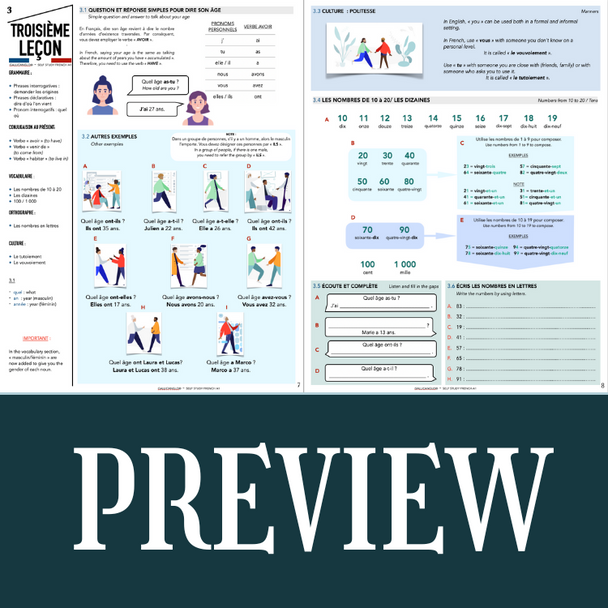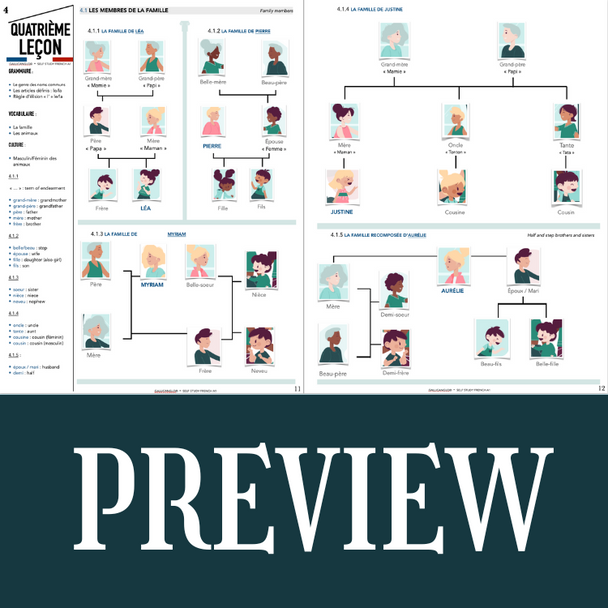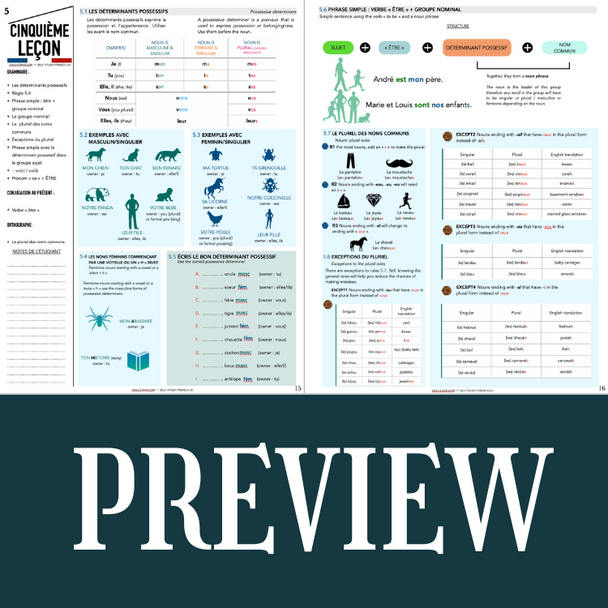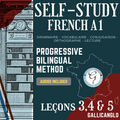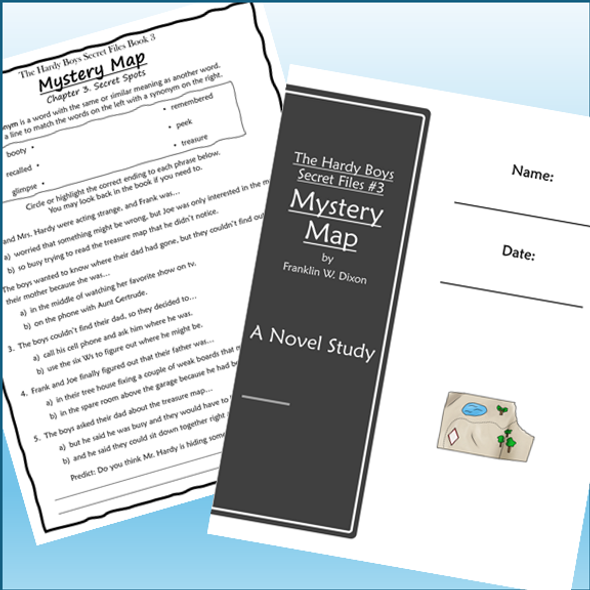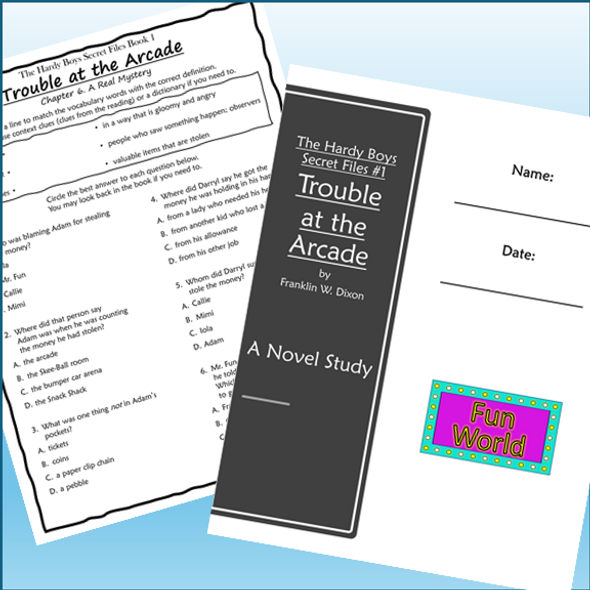Description
These three lessons of the Self-study French course book focus on building sentences. Developing your students' grammatical and conversation skills is the first step to gaining confidence. Most vocabulary terms are reused in lessons to reinforce memorization and understanding in context. Full preview available to see the content of each lesson.
♣ Formats :
-
PDF for print : Non-editable and editable US LETTER (meant to put answers) versions
-
Audio files : MP3
-
PREA1.OP.1 : Can produce short phrases about themselves, giving basic personal information (e.g. name, address, family, nationality).
-
PREA1.WP.1 : Can give basic personal information (e.g. name, address, nationality), perhaps with the use of a dictionary.
-
A1.OC.1 : Can follow language which is very slow and carefully articulated, with long pauses for them to assimilate meaning.
-
A1.WP.2 : Can produce simple isolated phrases and sentences.
Grammar :
-
Phrase interrogative : demander l'âge d'un personne / Interrogative sentence : asking someone their age (formal and informal)
-
Phrases interrogatives : demander les origines / Interrogative sentences : asking someone where they are from (formal and informal)
-
Phrases déclaratives : dire d'où l'on vient / Declarative sentences : saying where one is from
-
Pronoms interrogatifs : quel, où / Interrogative pronouns
-
Genre des noms communs / Noun's grammatical gender
-
Article définis : le, la, l' / Grammatical articles
-
Règle d'élision / Use of the apostrophe
-
Les déterminants possessifs / Possessive determiners
-
Phrase simple : être + groupe nominal / Basic sentence : TO BE + noun phrase
-
Groupe nominal / Noun phrase
-
Le pluriel des noms communs et leurs exceptions / Plural forms and exceptions
-
Phrase simple : déterminant possessif dans le groupe nominal sujet / Basic sentence : possessive determiner in a subject noun phrase
-
Présentation : voici / voilà / Here is, Here are
-
Pronom "ce" + ÊTRE / It is, They are with the pronoun "ce"
Conjugation :
-
Verbe "avoir" au présent / "TO HAVE" present tense
-
Verbe "venir" au présent / "TO COME (from)" present tense
-
Verbe "habiter" au présent / "TO LIVE" present tense
Vocabulary :
-
Les nombres de 10 à 20 / Numbers from 10 to 20
-
Les dizaines / Tens
-
100 / 1 000
-
La famille / Family
-
Les animaux / Animals
Culture :
-
Tutoiement / Informal speech
-
Vouvoiement / Formal speech
-
Genre des animaux / Grammatical gender of animals' names
♣ General advice :
I recommend using a notebook dedicated to this study so that your student can write full sentences right away. Even if they may simply have to fill in gaps, having a habit of rewriting the sentences will help memorize and build core skills in terms of forming simple sentences.
As for the audio files, numbers are put in subfiles so that they can work on specific numbers depending on their progress.
♣ General note :
First of all, thank you for visiting this shop! Feedback is greatly appreciated to improve future content. Don't hesitate to follow up as new products will be added on a weekly basis.
------------------------------------------
Copyright ©Gallicanglo. All rights reserved by author. This product is to be used by the original downloader only. Copying for more than one teacher, classroom, department, school, or school system is prohibited.
This product may not be distributed or displayed digitally for public view. Failure to comply is a copyright infringement and a violation of the Digital Millennium Copyright Act (DMCA).
Texts and elements found in these PDF/audios are copyrighted and cannot be extracted and used outside of this file without permission or license. Intended for classroom and personal use ONLY. Please purchase additional licenses if you intend to share this product


